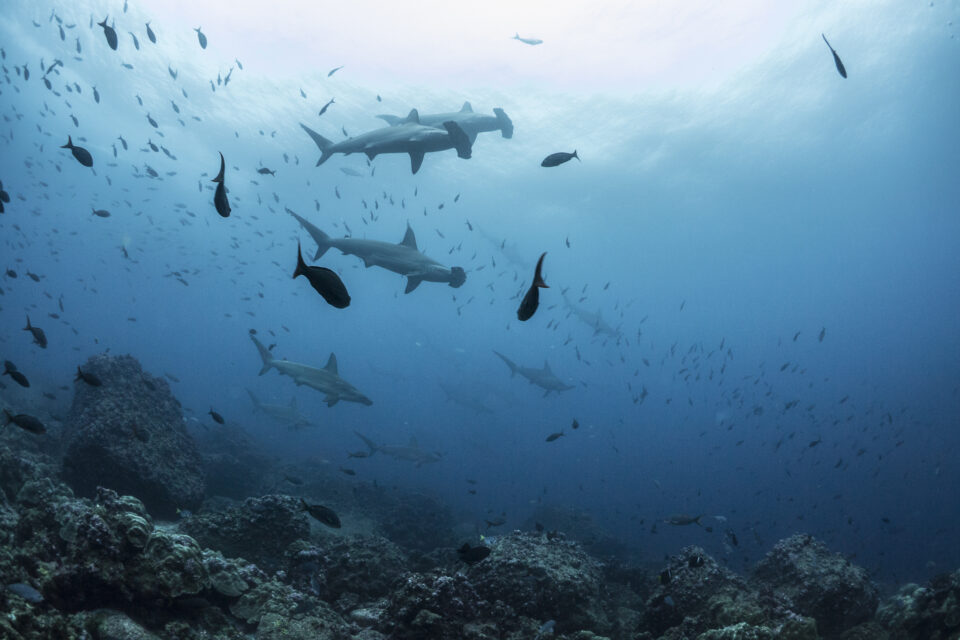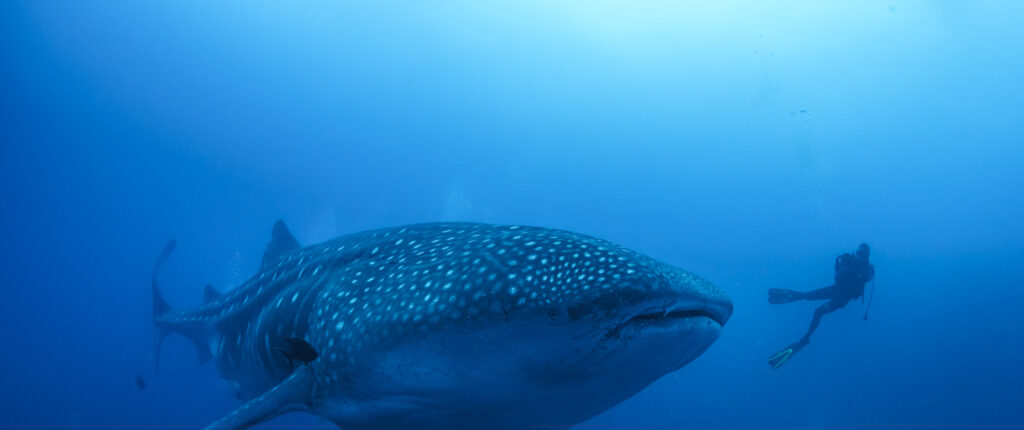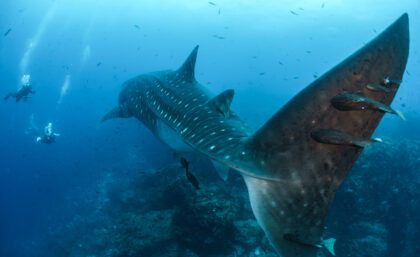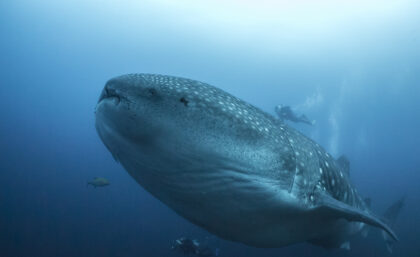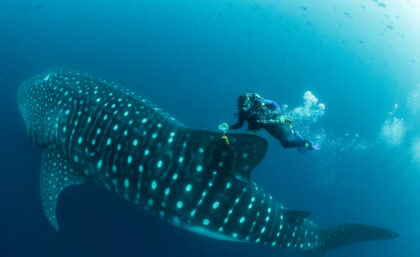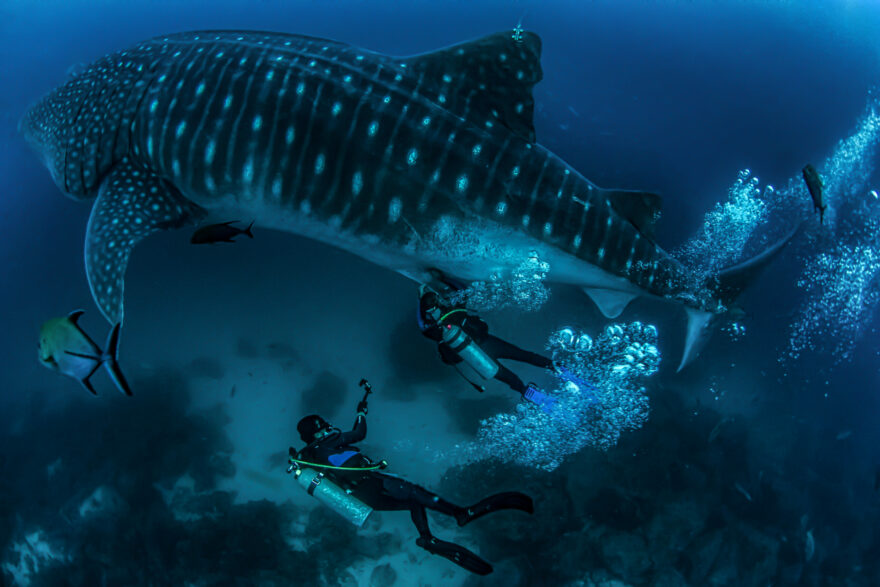
Common name:
Whale shark
Scientific name:
Rhincodon typus
Spanish name:
Tiburón ballena
Conservation status:
Endangered
Average lifespan:
Unknown
Average size:
10 – 12 metres
Maximum size:
18 metres
Average weight:
15 tonnes
Maximum weight:
30 tonnes
Overview
Whale sharks are the largest species of shark and the largest fish alive today. They have a circum-global distribution, occurring in all warm and temperate seas other than the Mediterranean, and are a migratory species. At a number of coastal locations, predictable aggregations of whale sharks occur at certain times of year. These are often referred to as ‘whale shark seasons’ and are normally associated with a local burst in productivity such as a coral or fish spawning event.
Whale sharks are primarily planktivores but they will also eat small fish from time to time. They are regularly observed swimming close to the surface with their mouth open in a feeding behaviour known as ram-filtration which channels plankton-filled water into their mouth. Whale sharks do possess teeth, although they are not used as part of feeding. Teeth measure up to 3mm and individuals may possess in excess of 3,000 teeth at any one time.
Whale sharks in Galapagos
Photo gallery
Click an image to view larger
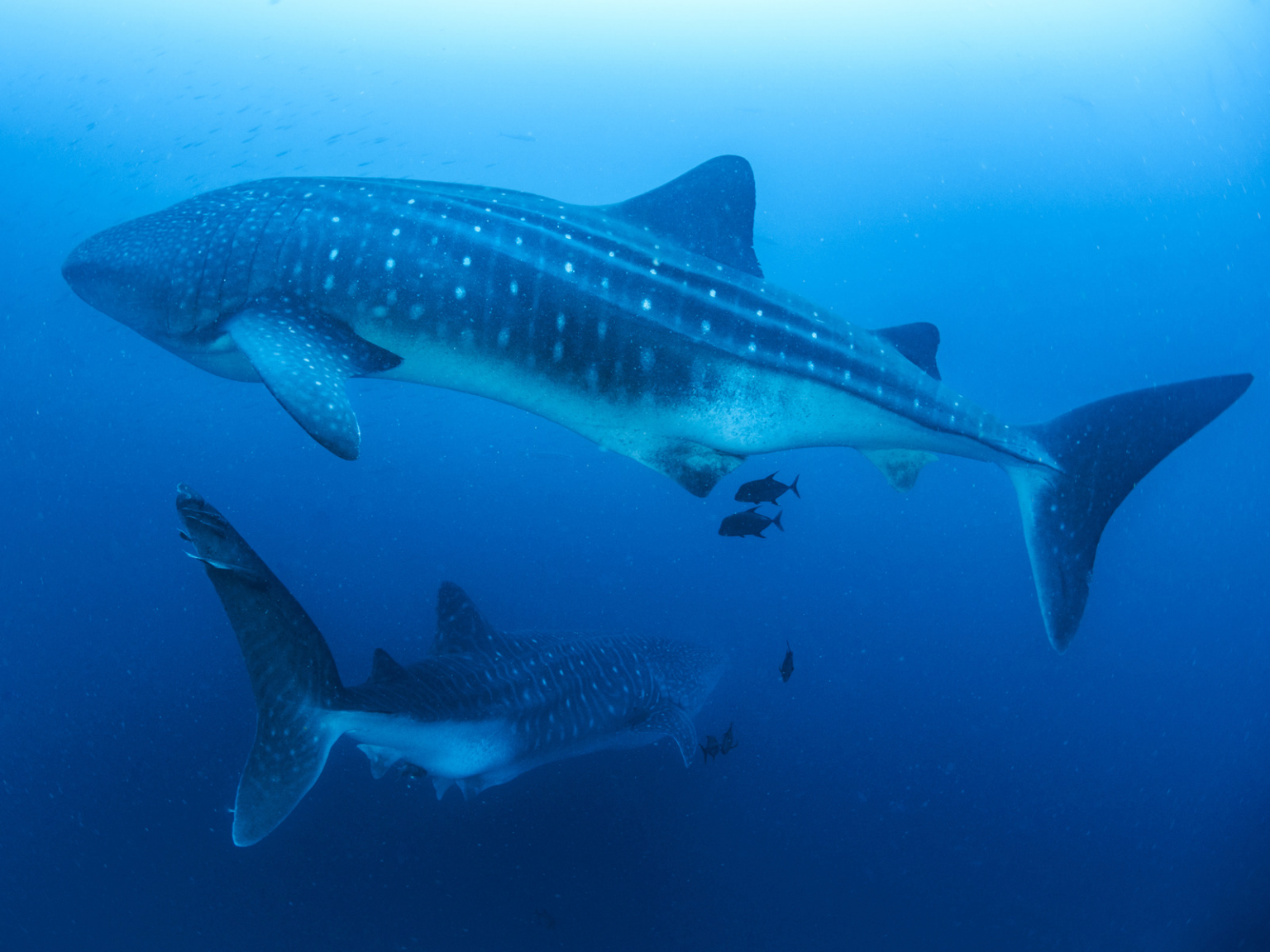
How you can help
Please help us protect these majestic creatures by donating today or by adopting a whale shark.
Read more about whale sharks...

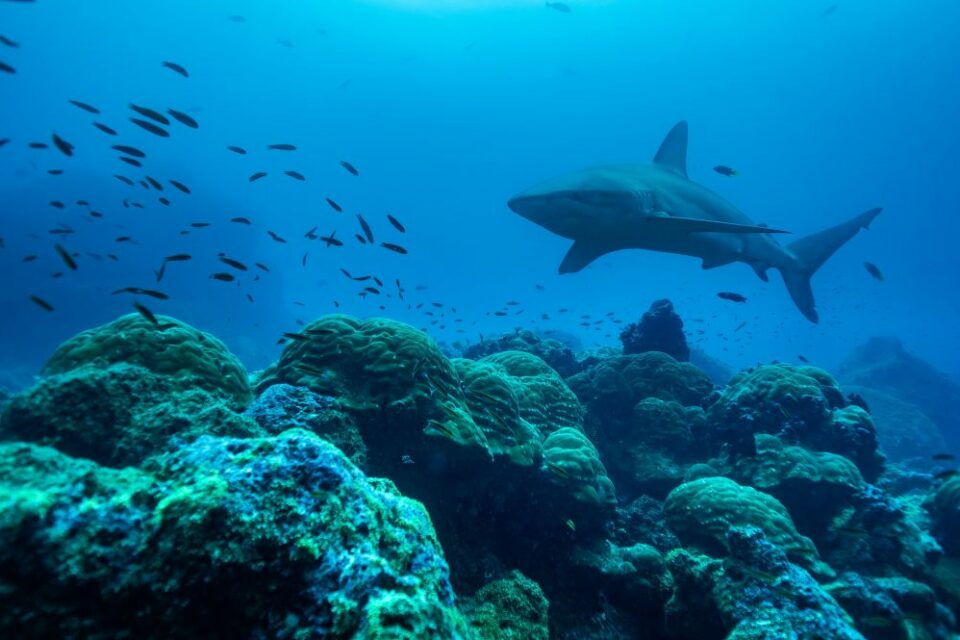
Sharks: Our ocean’s superheroes, not villains

Tagging a new constellation of whale sharks
